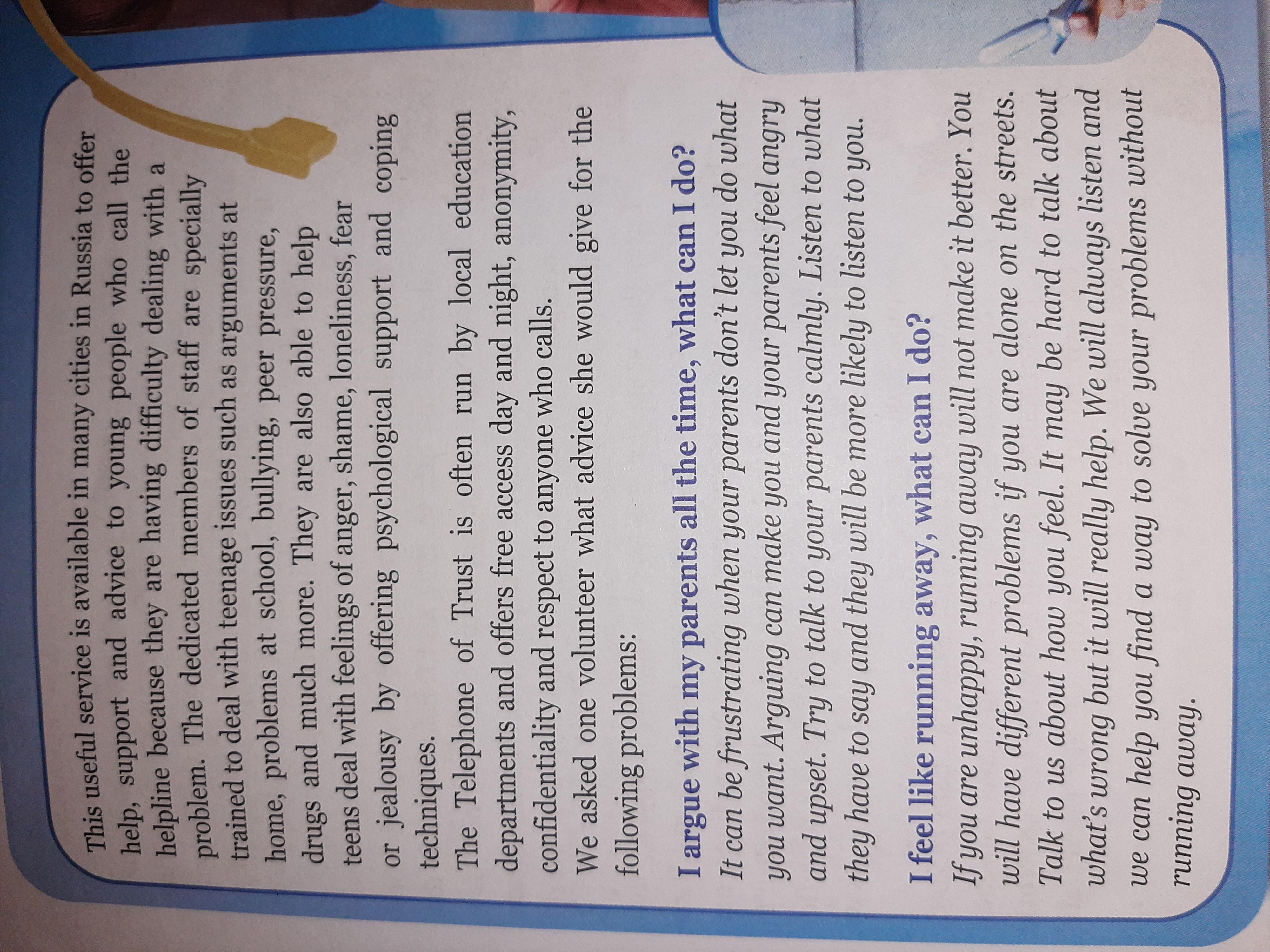Предмет: Английский язык,
автор: Аноним
задать 5 вопросов к предложениям из текста - 1общих,1специальных,1разделительных, 1альтернативных и 1 к подлежащему.
Приложения:

Ответы
Автор ответа:
1
1. Is this service available in many cities in Russia?
2. What does this service offer to young people?
3. The telephone of trust is often run by local education departments, isn't it?
4. Does it offer free or paid excess day and night?
5. Who will always listen and can help find a way to solve your problems without running away?
Похожие вопросы
Предмет: Русский язык,
автор: aleftina2013
Предмет: Английский язык,
автор: BabyJustLove
Предмет: Русский язык,
автор: semenyakina82
Предмет: Литература,
автор: толще